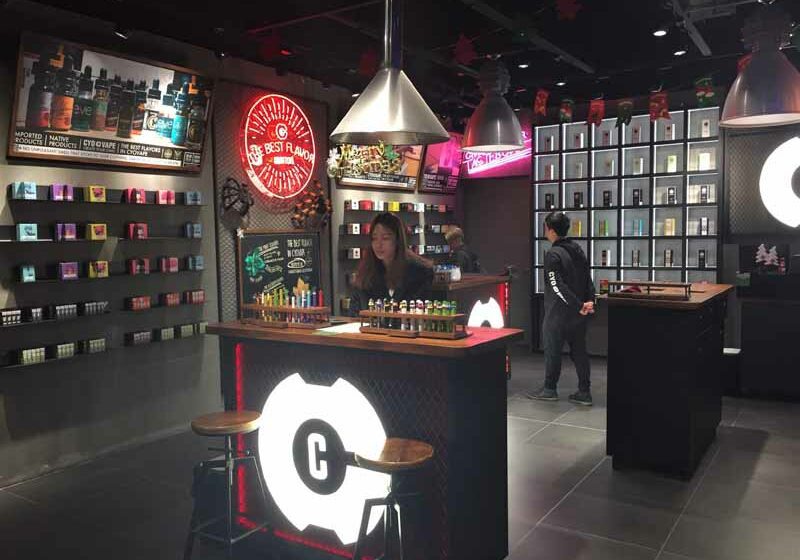
Vapor sales are slumping during the Covid-19 crisis, while combustible cigarette sales continue to perform better than expected, according to two industry analysts.
Overall sales volume for traditional cigarettes was down just 0.2 percent for the four-week period that ended July 11, according to the latest Nielsen survey of convenience stores.
By comparison, the sales volume was down 7.2 percent in the four-week period that ended in Aug. 10, 2019, writes Richard Craver in an article for the Winston-Salem Journal.
Meanwhile, sales of electronic cigarettes — down 13.2 percent for the four-week period — have continued to slump five months after the Food and Drug Administration implemented its latest round of heightened regulations on the products.
The FDA regulations have depressed the demand for closed-pod cartridges that provide the nicotine, with No. 2-selling Vuse of R.J. Reynolds Vapor Co. being the lone exception, according to the article.
The ability of traditional cigarette to flatten its sales decline year-over-year represents “a very dramatic change in the market and coincides with the concerted attacks on vaping over the past year,” said David Sweanor, an adjunct law professor at the University of Ottawa and the author of several e-cigarette studies. “It is deeply ironic that the credit for the recovery of the cigarette business from a near-death experience a little over a year ago can be credited to the Centers for Disease Control and Prevention, Michael Bloomberg and the others who pushed an abstinence-only agenda on nicotine. By undermining the low risk alternatives to cigarettes they protected the cigarette business.”
The biggest factor in the most recent report was the list price hike by the major three U.S. tobacco manufacturers in June.
Goldman Sachs analyst Bonnie Herzog reported that Philip Morris USA raised its list price by 11 cents a pack for Marlboro, including Marlboro HeatSticks, and eight other brands. It is typical that R.J. Reynolds Tobacco Co. and ITG Brands LLC raise their prices by a similar amount.
The list price is what wholesalers pay manufacturers for their products. The increase typically is passed on to customers at retail, the article states. The manufacturers also raised by 8 cents a pack the list prices of their traditional cigarettes on Feb. 23.
During 2019, the manufacturers raised their prices by 9 cents to 11 cents a pack in April, 6 cents in June and 8 cents in October. Traditional cigarettes had $60.05 billion in sales at convenience stores over the past 52 weeks, representing 80 percent of all U.S. tobacco sales, according to the Nielsen report.
Moist snuff and chewing tobacco were at $7.51 billion and 10 percent, while electronic cigarettes were at $3.8 billion and 5 percent, and cigars at $3.59 billion and 5 percent.
Overall e-cigarette sales-volume growth has declined steadily since Nielsen’s Aug. 10, 2019, report, when it was up 60.2 percent year over year.
The latest FDA restrictions on the sector debuted Feb. 6. The FDA raised the legal smoking age from 18 to 21 on Dec. 20. Those restrictions foremost required manufacturers of cartridge-based e-cigarettes, such as Juul Labs Inc., R.J. Reynolds Vapor Co., NJoy and Fontem Ventures, to stop making, distributing and selling “unauthorized flavorings” by Feb. 6, or risk enforcement actions.
The menthol and tobacco flavors still allowed for cartridge e-cigarette flavorings are the same as those that are legal in traditional cigarettes, the article states.
Juul’s four-week dollar sales have dropped from a 50.2 percent increase in the Aug. 10, 2019, report to a 31.7 percent decline for the latest report. By comparison, Reynolds’ Vuse was up 62.9 percent in the latest report and NJoy down 14.2 percent.
Juul has a 57.6% market share, down from 58.9 percent in the previous report. Vuse is at 22 percent, up from 20.4 percent, while NJoy at 5 percent, down from 11.3 percent, and Fontem Ventures’ blu eCigs at 2.7 percent, down from 3 percent.
Herzog said that NJoy “refutes Nielsen’s data and methodology,” according to the article.

